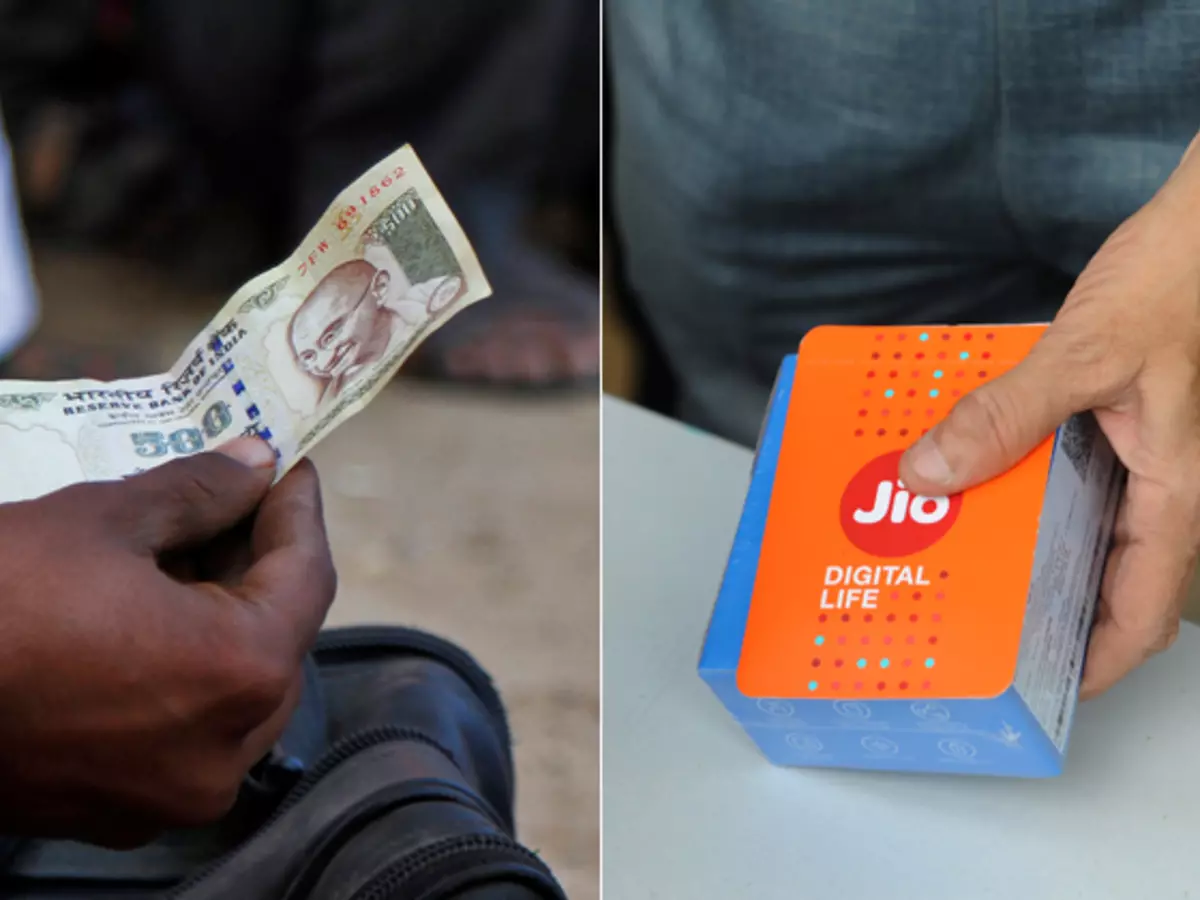Here's Why Reliance Jio Is Rallying Against Use Of Demonetised Rs 500 Notes For Mobile Recharge
eliance Jio Infocomm and India's telecom incumbents seem to have found another issue on which they disagree. Mukesh Ambani-owned Jio believes the recent move allowing prepaid users to buy electronic top-ups with demonetised Rs 500 notes until Decembe

Reliance Jio Infocomm and India's telecom incumbents seem to have found another issue on which they disagree. Mukesh Ambani-owned Jio believes the recent move allowing prepaid users to buy electronic top-ups with demonetised Rs 500 notes until December 15 can be misused at the retail level to launder money.

AFP
This view was dismissed by majority members of the Cellular Operators Association of India (COAI), which is where Jio raised its contention. COAI represents India's three largest phone companies ¡ª Bharti Airtel, Vodafone India and Idea Cellular¡ªbesides Jio.
Industry insiders said there may be some merit in Jio's concerns, given the lack of clarity on the total number of top-ups a prepaid user can do using old Rs 500 notes. "A truant retailer in a Tier 2/3 town or a village can easily prey on an ignorant customer by saying that the government is only allowing top-ups up to Rs 500, but that he is ready to offer multiple recharges for a commission to help them dispose of defunct cash," said a senior executive. Also, a person can convert his own demonetised Rs 500 notes into legal tender through multiple recharges, he added. It is not quite clear what is the quantum of money that can be exchanged or spent in this manner.

Reuters
But Jio could get adversely impacted if pre-paid users, who make up over 90% of a telco's user base, load up on talktime before December 15. "Such a scenario would reduce the immediate appetite for Jio's offerings as customers would get locked in to incumbents for multiple months," said another industry executive familiar with the issue.
This will also give average revenue per user (ARPUs) of incumbents a temporary boost. Top players currently have an ARPU (Average revenue per user) of around Rs 200.
The government notification, dated November 24, had allowed "payments towards prepaid mobile top-ups to a limit of Rs 500 per top-up (using old Rs 500 notes)" till December 15, without specifying any limit on the number of such recharges.
The exemption was made by the government "in public interest post due diligence by the government and relevant departments," said COAI director general Rajan Mathews. Telecom operators have put in place "various checks and balances to prevent misuse" of such top-ups, he said.

AFP
Jio did not reply to ET's queries on its specific concerns or on whether its business had been temporarily impacted. Experts suggest that the misuse of the old currency exemption for top-ups can happen in multiple forms.
Atruant retailer can pass off his own old notes as 'white money' by saying he collected them from customers, said a senior industry executive. Also, since a prepaid services retailer is an official repository of old Rs 500 notes till December 15, he can also use a portion of his white money collections to run an exchange service for ordinary folks wanting to convert black money for a hefty commission, the persons cited above said.

Reuters
Bharti Airtel, Vodafone India and Idea Cellular did not reply to ET's queries on whether they had detected any misuse at the retail end or taken any step to prevent abuse. Incidentally, Jio was the sole COAI member to object to the industry association's call for prepaid top-ups using old notes as it feared there could be misuse.
It is learnt that some government officials had shared those concerns, but relented in the interest of easing the cash crunch.
Last month, COAI had written to telecom minister Manoj Sinha seeking a relaxation in demonetisation rules to enable distributors and retailers to accept old currency notes in the interest of consumers, especially since telecom is an essential service. COAI had, however, mentioned in its letter that only Jio held a divergent view on the issue as it feared misuse.
